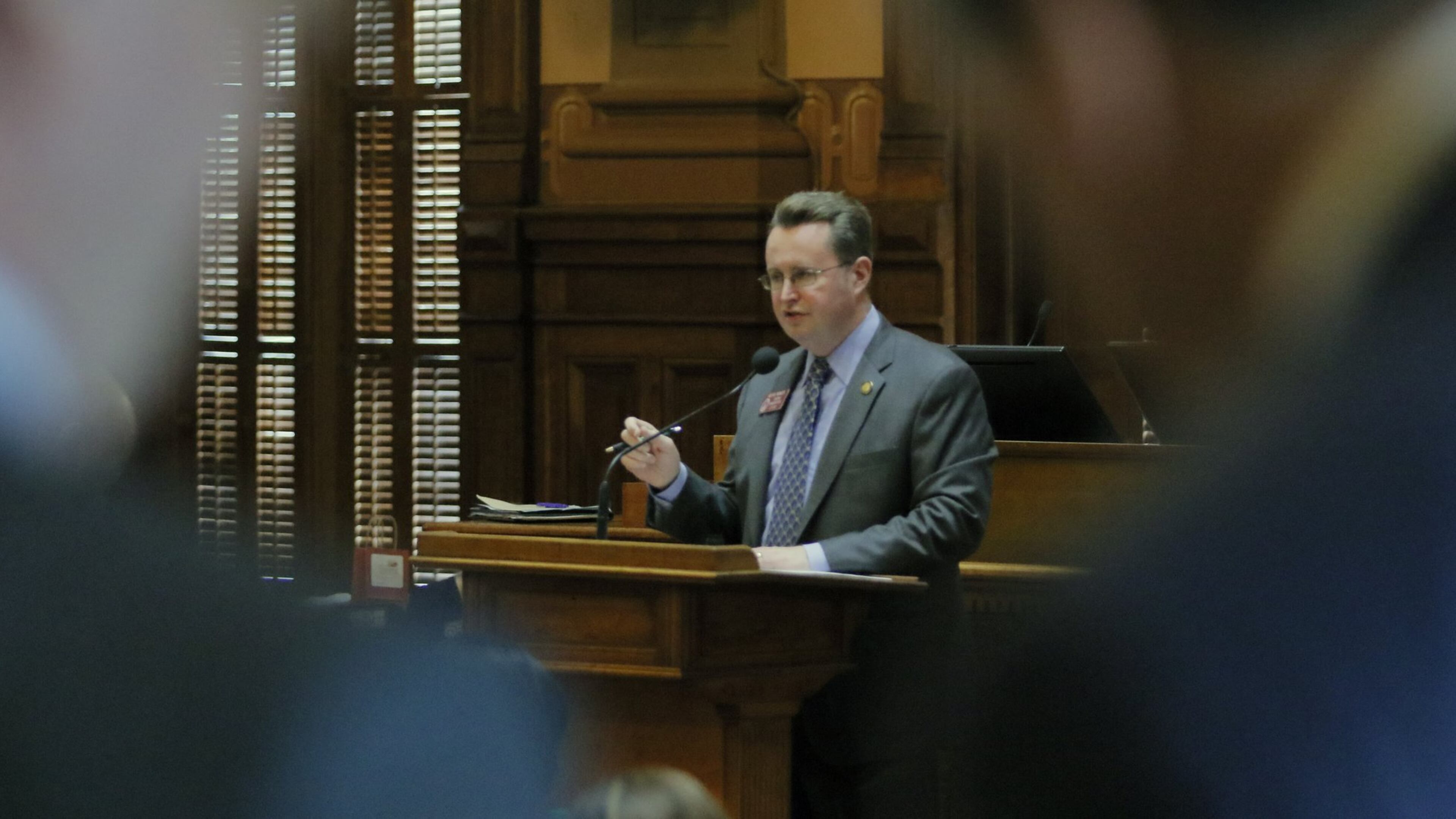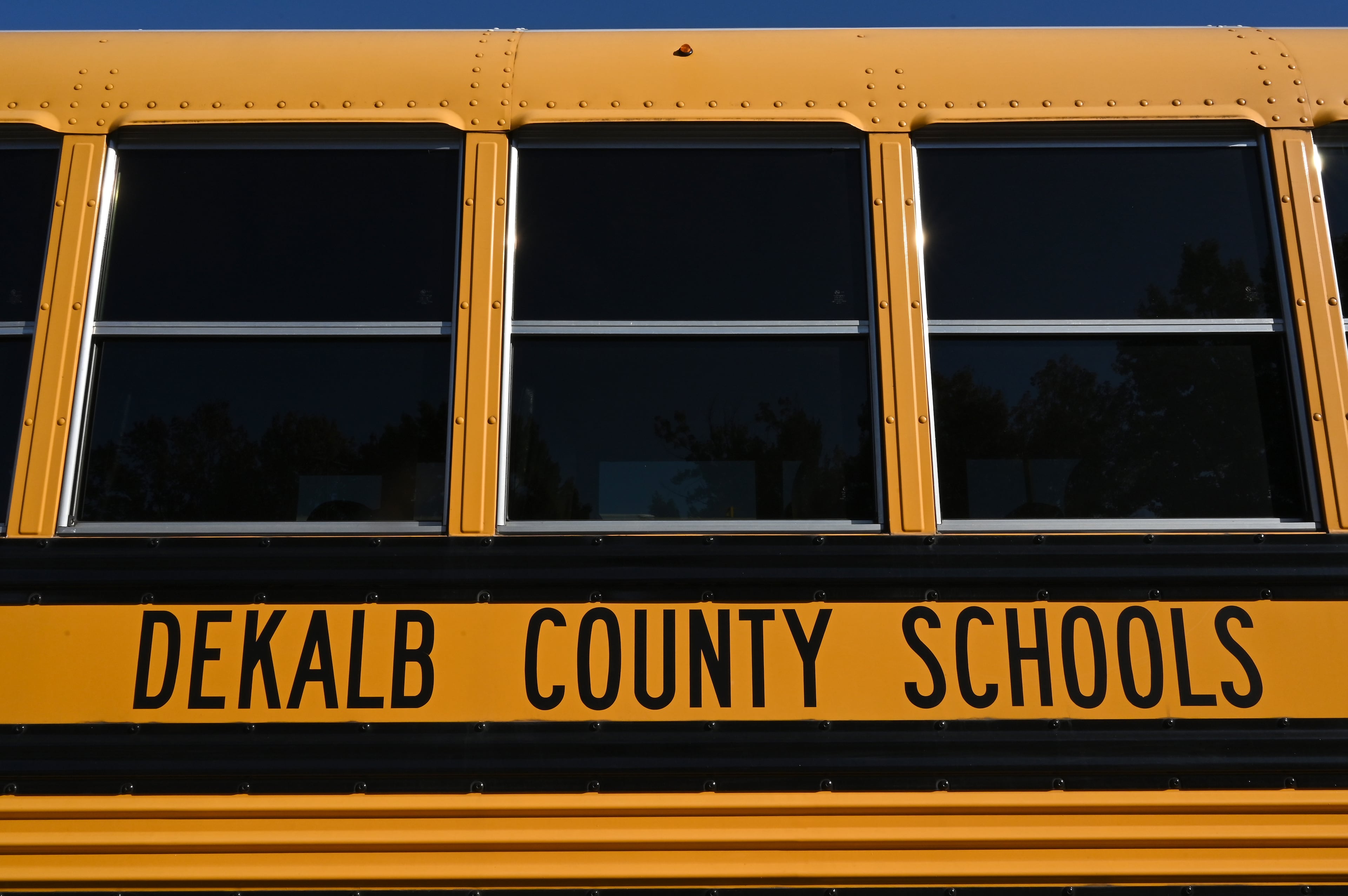Reaction mixed to “Plan B” bill after Opportunity School District

Georgia’s new approach to so-called failing schools has not become a law yet, but it’s already accomplished one thing: It’s fractured the possible opposition.
Where last year’s Opportunity School District proposal to let the state take over “chronically failing” schools galvanized opponents across much of Georgia’s educational spectrum, the legislation that some call the “OSD Plan B” is a much more pragmatic attempt at a law that can begin to make a change, if not on the same scale as the one voters rejected in November.
House Bill 338 contains something for just about everyone and also contains something just about everyone dislikes.
Some oppose the bill, many are “meh.” And some support it, or at least portions of it.
One provision that is popular among traditional public school advocates is a commitment to addressing what educators see as the main cause of low achievement: community poverty — children who start school with a deficit in reading and in everything else, and live in inadequate housing, with inadequate food and medical care. HB 338, sponsored entirely by Republicans, proposes to diagnose and do something about such liabilities in communities with schools deemed “unacceptable.” It even contains hints, but not promises, of monetary aid.
That concession moved the Georgia School Boards Association, which opposed the OSD, to say it "strongly" supports HB 338's willingness to address "the elements of the landscape" that affect student performance. "In over 20 legislative sessions," it said, "this is a first from the majority party," but the group also opposes a provision that allows for the removal of school board members in districts with a preponderance of under-performing schools.
The Georgia School Superintendents’ Association “cautiously” supports the bill, but the state NAACP opposes it.
So does the Georgia Federation of Teachers, which calls the bill a "backdoor approach" to the OSD. It gives schools "the choice of drinking gasoline or kerosene," the group's president, Verdaillia Turner, said. School districts must opt in to the program to be subject to its provisions, but could face financial consequences if they refuse.
Groups that push for changes to the current educational system have been largely silent because the legislation does not have an element of student “choice.” Low-performing schools could be converted to charter schools, but students in them wouldn’t choose whether to attend. The bill does contain a provision about busing students to a different school if they choose, but it would be to another school run by the same district.
The bill's main author, Rep. Kevin Tanner, R-Dawsonville, originally included a requirement that the state pay to send students in low-performing schools to private schools. But he deleted it to eliminate opposition, winning supporters such as House Minority Leader Stacey Abrams. The leading Democrat praised Tanner for removing the "scourge of vouchers" from his legislation and for addressing poverty, and urged her party members to support it when it was up for a vote on the House floor Wednesday. Half of them did, along with all but a handful of Republicans.
The bill now must get through the Senate. As if to highlight how conflicted people are about it, the state’s largest teacher advocacy group, the Professional Association of Georgia Educators, with over 92,000 members, said they “neither support nor oppose the bill.”
They like that it addresses poverty but don't like that the state official in charge of picking and overseeing targeted schools would fall in the governor's chain of command. The Chief Turnaround Officer would report to the state Board of Education, which is appointed by the governor. PAGE and others want the turnaround officer reporting to the elected state superintendent, something the superintendent himself also wants, but Tanner said he wants the person in charge to have enough credibility with the governor and the General Assembly to get additional funding from them for targeted schools and communities.



